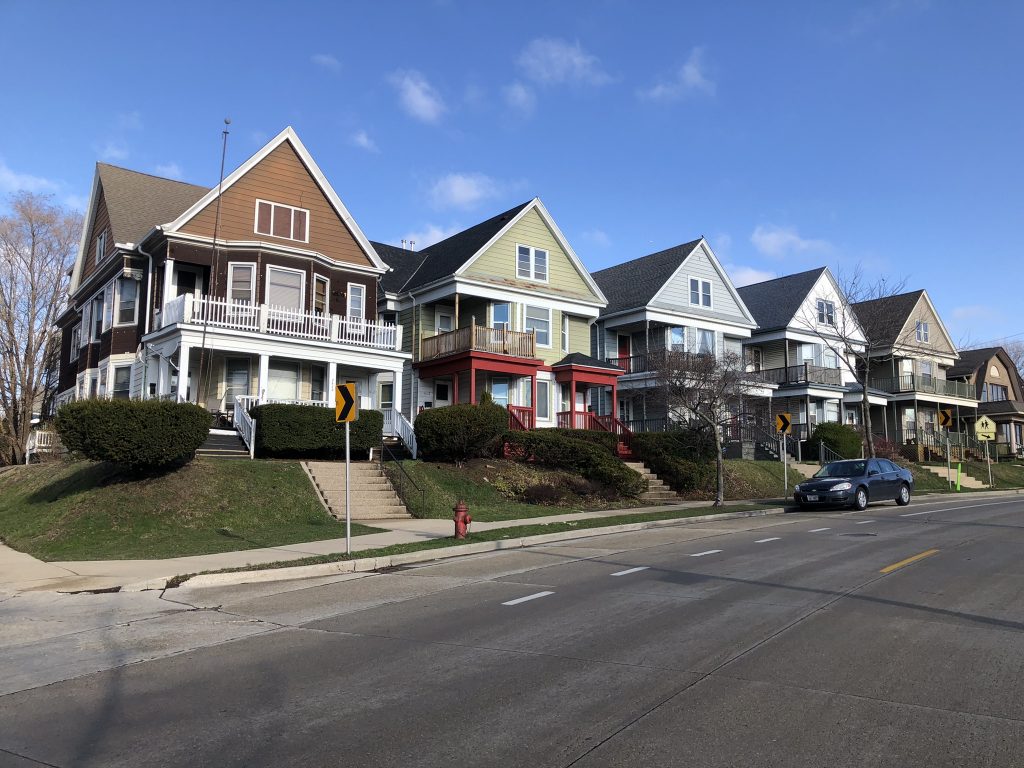City Won’t Fully Regulate Airbnb In Milwaukee
Mayor's staff recommends letting status quo stand, council wants more discussion.
After a six-month review, members of Mayor Cavalier Johnson‘s administration aren’t recommending the city explore further regulating Airbnb or other short-term rental (STR) providers.
And not because state law prevents it, but because the administrative burden would likely exceed the public benefit and any increase in revenue.
“It would be, at best, a break-even result,” said Department of Neighborhood Services (DNS) Commissioner Jezamil Arroyo-Vega. And she said it could take several years to get to that point. “The group is not recommending additional STR regulations at this time.”
“It would require enough staff to inspect all of the units,” said Department of City Development planning manager Sam Leichtling, summarizing the key issue. DNS is already short staffed, which has resulted in delays in a push to improve conditions with Housing Authority of the City of Milwaukee properties.
A 2017 state law change fully legalized the hotel-alternative services, while preserving some areas for local control. Property owners can legally rent out their homes. All that is technically required is securing a state-enabled tourist rooming house license from DNS. But only a few dozen property owners have done so. “The law says they have to have the license… the compliance is very low because there is no penalty,” said Leichtling.
As a result, the city doesn’t really know how many STR units are available. Officials estimate there are approximately 1,100. And if everyone was to start complying with the law, DNS would need to inspect each unit.
“In order to appropriately implement a STR regulatory procedure, a long-term approach would be needed,” said Arroyo-Vega, who cited software and staffing as starting points, but also the need for training and a new enforcement procedure.
The STR workgroup was formed in June at the request of Alderwoman Milele A. Coggs, who said portions of her district near Downtown are experiencing a proliferation of single-family homes repurposed as STRs. The resolution called for the group to report its findings by September.
“It’s been a year. Why hasn’t there been a ‘Hey, we saw this; we want to share this with you?” asked committee chair Ald. Michael Murphy.
“I am getting a lot of calls from residents and I just had calls this week about this issue,” said Coggs. She said residents followed up about specifically about the 2023 workgroup. The alderwoman said the only reason she was aware of any progress was because Licenses Division manager Jim Cooney mentioned it to her.
And even with the challenges, Coggs and other colleagues don’t want to see the issue die. The alderwoman said she would like to limit the density of the rentals. Other council members requested a strategy be devised to record where the units are. Murphy suggested he only learned where they are in his district following shootings.
“I think it can be done based on complaint-driven [inspections],” said Ald. Russell W. Stamper, II, referencing DNS’ current inspection process.
Arroyo-Vega said the workgroup did ensure that the appropriate hotel taxes are being paid, but noted that the state and Wisconsin Center District, not the city, are the recipients of those revenues.
Coggs said she would like the city to explore a negotiation with the Wisconsin Center District to enable a portion of the district-collected hotel tax to fund an enforcement apparatus.
Cooney said he did discuss licensing frameworks with other municipalities. Madison requires an owner-occupant to be present for stays shorter than seven days and imposes an annual frequency cap. There are hundreds of licensed units in Madison, but Cooney said he had yet to find an example where any Wisconsin city with enhanced regulations revoked a license. DNS officials said state regulations are likely to impose limits on fines.
Milwaukee’s regulations already restrict larger buildings from leasing more than four units without securing a hotel license. The Nova apartment building recently secured a zoning change to enable up to 90 units to be leased on STR platforms for a two-year period.
Council members held the file open, requesting it to be publicly discussed again.
“This is not the end,” said Arroyo-Vega, pledging to continue the review. But until then, look for Airbnb, VRBO and other services to be exceedingly popular during the Republican National Convention.
Legislation Link - Urban Milwaukee members see direct links to legislation mentioned in this article. Join today
If you think stories like this are important, become a member of Urban Milwaukee and help support real, independent journalism. Plus you get some cool added benefits.
Related Legislation: File 231550
Political Contributions Tracker
Displaying political contributions between people mentioned in this story. Learn more.





















